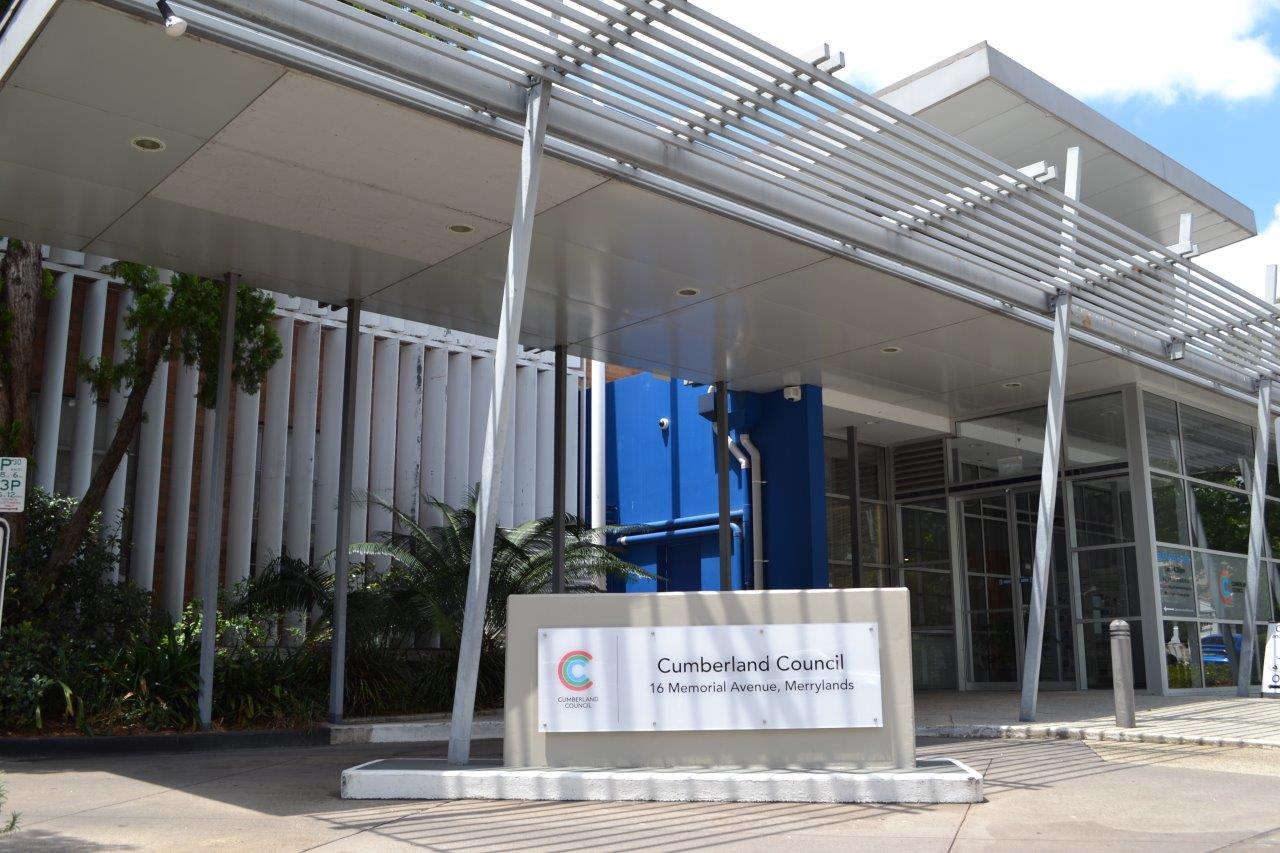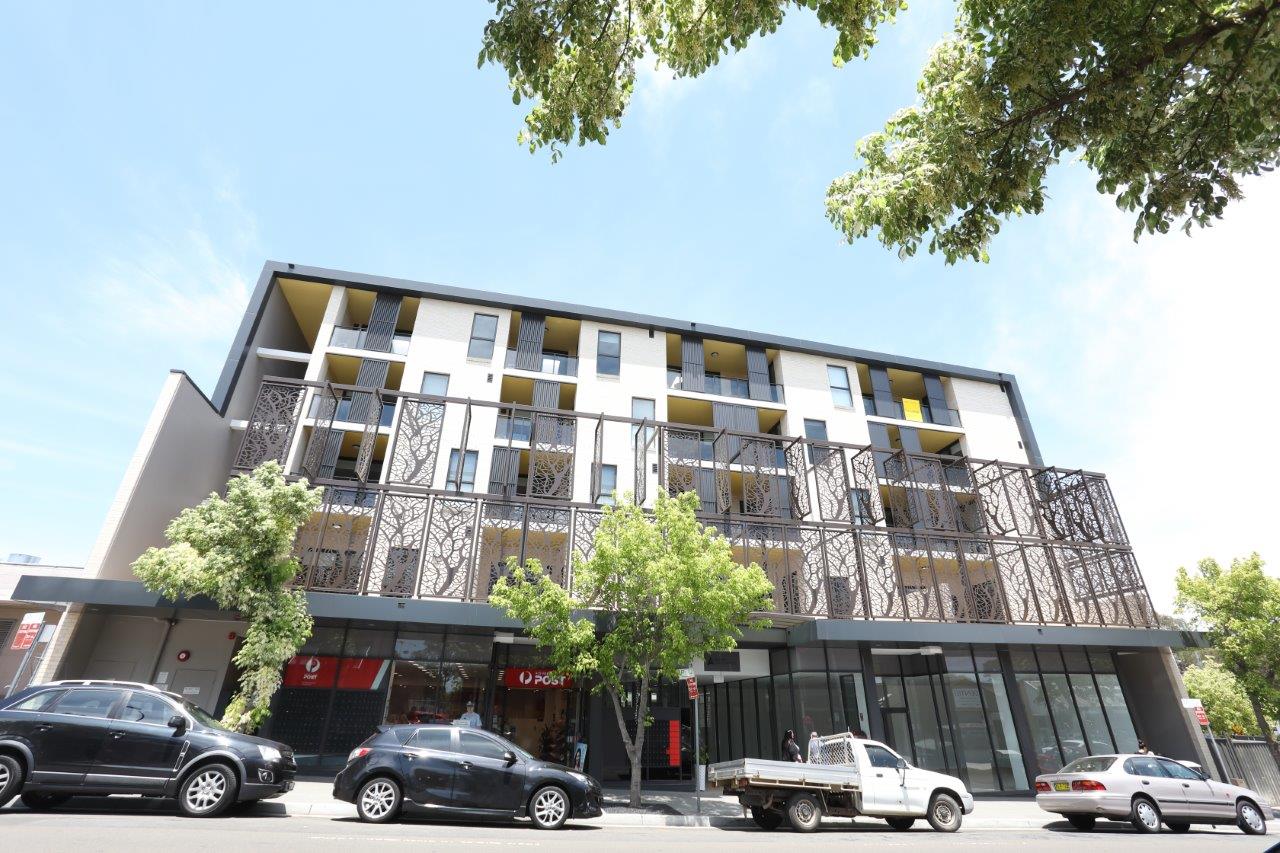
Lodgement Requirements
All applications will need to be lodged via the NSW Planning Portal
To submit an application through the Planning Portal you will need to register and verify an account.
Council's Building Services Team
Our Building Services Team provides certification services for building and construction in the Cumberland City Council Local Government Area.
As the official certifying authority of Cumberland City Council, we are highly qualified, professional, efficient and cost-effective – with us, you can be sure that your development will be done the right way, all the way through, saving you time and money over the long run.
Our Services
We offer all the building and construction certification services our growing City could need, from Construction Certificates for around the house renovations to assuming the role of Principal Certifying Authority for multi-storey commercial complexes.
Online Certificates
If you need a 10.7 Planning Certificate, 603 Certificate and / or 735A Certificates, you can use our quick and easy online system.
Construction Certificates
A Construction Certificate is needed after your Development Application is approved and construction actually begins. We will ensure that your construction plans and specifications comply with the Building Code of Australia (BCA), relevant Australian standard, and are consistent with the terms of the Development Consent, and that you are aware of all the contributions and fees that need to be paid.
Complying Development Certificates
A Complying Development Certificate is needed to confirm that your development meets the requirements of the BCA’s ‘Complying Development’ category. We will ensure that your plans and specifications comply with all the relevant laws and regulations.
Certifying Authorities and Principal Certifying Authority
As your development progresses, you will need to issue Construction Certificates and Complying Development Certificates, and a possible Principal Certifying Authority (PCA), who can undertake mandatory inspections.
Building Inspections
We provide a competitive building inspection service with a special fee packages offered for customers who use our certification services.
Assistance on the Building Code of Australia and Development Applications
The BCA and DAs can be very technical. Our team of friendly experts will explain everything you need to know about the BCA and take you through the entire DA process. We will ensure that your development does not need to take any more of your time, energy and money than absolutely necessary. see Australian Building Codes Board
Building an Education and Care Service
Thinking of building an education and care service? Please read through Council’s Development Application Tool Kit for Education and Care Services for more information.
Compliance, Occupation and Strata Subdivision Certificates
A Compliance Certificate specifies that building work has been completed in accordance with specifications and standards. An Occupation Certificate authorises final occupation or a change of use for a building. A Strata Subdivision Certificate authorises the registration of a plan of subdivision.
Annual Fire Safety Certificates
An Annual Fire Safety Statement (AFSS) certifies that specific fire measures have been installed and operate in accordance with the performance standards at the time of installation.
Swimming Pool Safety Compliance Certificates
You will need to obtain a Swimming Pool Compliance Certificate if you are a swimming pool owner who will sell or lease your property from 29 April 2015 or; the owner or landlord of a tourist and visitor accommodation and / or multi-occupancy developments with a swimming pool.
Hoardings
For any development work which adjoins a public area, you will need a temporary hoarding or fence is to be provided to protect the public. You can find more information on Hoarding on the FAQ section below.
Further information
For more information, please contact our Building Services Team on 02 8757 9000.
Frequently Asked Questions (FAQ's)
What is a Construction Certificate?
Before any building work begins, a Construction Certificate is required to verify that:
- The work you intend to carry out complies with the Building Code of Australia (BCA).
- The design and construction work as depicted in the plans and specifications you submit is not inconsistent with the development consent.
- Any conditions of development consent that must be complied with before a construction certificate is used have been met.
- Security deposits required as a condition of consent have been provided.
- Any monetary contributions required as a condition of consent have been paid.
- Structural strength and fire protection matters have been satisfied, in the case of a change of building use or alterations to an existing building.
When is a Construction Certificate required?
A Construction Certificate is required after development consent is issued and before any building work is carried out.
Building work means any physical activity involved in the erection of a building. This includes alterations and additions. See Part 6 of the Environmental Planning and Assessment Act 1979 for more information.
Who can issue a Construction Certificate?
A Construction Certificate can be obtained from Cumberland City Council or from a private sector accredited Certifier.
How do I apply for a Construction Certificate?
You will need to lodge a Construction Certificate application through the NSW Planning Portal. This needs to be accompanied by owner’s consent and all other supportive plans and documents.
Only the person having the benefit of the development consent is eligible to make an application for a Construction Certificate.
Can I apply for development consent and a Construction Certificate at the same time?
Yes. You can submit an application for a Construction Certificate at the same time as you apply for Development Consent.
How can I help expedite the Construction Certificate approval process?
You can help with the approval process by reading the Development Application approval and submitting all required amended plans, information, fees and contributions as required by the conditions of consent.
Specifically, you should ensure:
- All plans are accurate, legible and not inconsistent with the Development Application approval.
- Specifications have been provided indicating compliance with the relevant Clauses of the Building Code of Australia and Australian Standards.
- Engineer’s details accurately reflect the proposal and are not inconsistent with the Development Application approval.
- Engineer’s details are signed by an appropriate qualified engineer with accreditation number.
- Information required by as a condition of the Development Application approval has been provided.
- Payment of all fees, contributions and bonds are made in full.
What fees are payable?
Upon the issue of Development Consent, Cumberland City Council will supply a fee proposal. This outlines the costs for using Cumberland City Council as an Accredited Certifier and/or Principal Certifying Authority.
Written quotations can also be provided. Our rates are competitive and inspections can be done with minimal notice.
How does a Construction Certificate relate to a Development Consent?
Under section 6.7 of the Environmental Planning & Assessment Act, once a Construction Certificate is issued it becomes part of the development consent.
As a result, notices and orders can be issued at any time if the building works do not meet the standards specified in the Construction Certificate.
How long does a Construction Certificate last?
A Construction Certificate lapses at the same time as the Development Consent issued for the proposal.
What if all the detailed design work is not yet finished?
You may find that all the information you require is not available at the same time you apply for your Construction Certificate. For example, structural, mechanical or hydraulic designs may not yet be finalised.
Similarly, details on sprinkler systems, fire hydrant, fire hose reel systems and smoke hazard management systems are unlikely to be available when you apply for the Certificate.
When these details are not available, you can state in the application your intent to comply with requirements by identifying the specific clauses in the Building Code of Australia and Australian Standards, codes or other documents, along with a brief description of how you propose to comply with each.
The Environmental Planning and Assessment Regulation 2021 does not require Council as the accredited certifier to check every aspect of the design and construction of the building before issuing a Construction Certificate.
Cumberland City Council as the accredited certifier must, however, be satisfied that the proposed building will comply with the Building Code of Australia.
Once issued, can a Construction Certificate be altered?
Clause 24 of the Environmental Planning and Assessment Regulation 2021 permits the person who has applied for a Construction Certificate to apply for it to be modified, or for a new Certificate to be issued.
The application and assessment process is the same as for the original application.
As the accredited certifier, Cumberland City Council will need to consider whether the nature and extent of the modification is inconsistent with the development consent. If it is, a request under section 4.55 of the Environmental Planning and Assessment Act to modify the consent would be required.
Can Construction Certificates be issued in stages?
It is possible to issue Construction Certificates for various stages of the development. For example, a Construction Certificate could be issued for works up to the ground floor slab and a second Certificate could be issued for the remaining floors.
Can conditions be applied to a Construction Certificate?
No. The inability to impose conditions on a Construction Certificate means that any defects or deficiencies found by the assessing Certifying Authority in the building or subdivision works or design or construction have to be rectified by the lodgement of a modification application with Council before the Certificate can be issued.
A Construction Certificate cannot be issued for works that have already been erected or carried out.
What is a fire safety schedule?
A fire safety schedule is a list specifying the fire safety measures (both current and proposed) that should be implemented in the building premises.
It is issued with Construction Certificates, Complying Development Certificates, fire safety orders and Development Consents for a change of building use where no building work is proposed.
Is a fire safety schedule required to be attached?
A fire safety schedule is required to be attached to all Construction Certificates for class 2 to 9 buildings identifying the fire safety measures that must be subject to the maintenance and certification requirements in Clause 9 of the Environmental Planning and Assessment Regulation 2021.
An Occupation Certificate cannot be issued until all the fire safety measures have been installed, inspected and certified through a fire safety certificate.
My Construction Certificate has been issued. What do I do next?
Once you have your Development Consent and a Construction Certificate, you cannot start any work on the site until the owner, lessee or owners agent has appointed a Principal Certifying Authority to oversee the work.
How do I appoint Cumberland Council as a Principal Certifying Authority?
When Council issues the Construction Certificate a service agreement will also be provided with the documentation.
This agreement specifies what inspections are required, what additional details are required to be lodged prior to the commencement of works and what certificates will need to be submitted prior to occupation.
When can I start building work?
You can start building work once a Construction Certificate has been issued, a Principal Certifying Authority has been appointed and when you have obtained any insurance (if required).
What are Hoardings?
A temporary hoarding or fence is to be provided to protect the public. This should be located around the perimeter of a site, unless the site is separated from the adjoining land by an existing structurally adequate fence with a minimum height of 1.5 metres.
Hoardings or fences are to be structurally adequate and must be constructed in a good and workmanlike manner. The use of poor quality materials or steel reinforcement mesh is not permitted.
Prior to the construction of a hoarding, approval must be obtained from Council. This involves an approval under Section 68 of the Local Government Act 1993 to erect hoarding or scaffolding in a public place.
The application should:
- Include payment to Cumberland City Council for the Hoarding/Structure application fee, rental of footpath area (per metre per month, with a minimum of 3 months rental) and a footpath bond
- Include required documents: a Certificate of Currency for Public Liability insurance, Certificate of Currency for Worker’s Compensation Insurance, a letter indemnifying Cumberland City Council against claims and expenses made in relation to the existence of the structure and/or traffic provisions and a traffic/pedestrian control plan.
- Comply with Council’s specifications for the erection of Class A or B hoardings. Note that a B class overhead hoarding is required to be provided to protect the public, located adjacent to the development prior to the commencement of any works on the site which will include any hoisting of materials over a public footway or adjoining premises, or any building or demolition works on buildings which are over 7.5 metres in height and located within 3.6 metres of the street alignment.
- Supply evidence to the Principal Certifying Authority and to any authorised Council officer that the road reserve rental fee has been paid.
Do I need to contact Cumberland Council before I start work?
As part of the Principal Certifying Authority agreement with Council you will be required to nominate a date for commencement of work.
When is the Principal Certifying Authority required to do inspections of the building?
The PCA is required to do inspections at the start of the project to ensure correct site management and sediment erosion controls are in place. They will also ensure that Waterproofing of wet areas, external balconies and planter boxes, framing, pool fencing, fire safety measures and hydraulic connections are in place.
They will also carry out a final inspection.
Council building surveyors will provide a written report following each inspection. Failing to have a mandatory inspection carried out may result in complications with issuing a Final Occupation Certificate.
For inspection bookings, please call 02 8757 9000.
When is a Structural Engineer required to do inspections of the building?
A Structural Engineer is required to certify piers, foundations and footings, reinforcement steel prior to pouring out of concrete, any suspended reinforced concrete slabs, steel beam, lintels and any other structural members where specified in the service agreement with Cumberland City Council, or when there is a structural variation to the approved plans and details.
When can I move into my building?
Before you can move into your building, the Principal Certifying Authority must issue you with an Occupation Certificate.
This can be done after a final inspection on the building has been carried out and Council’s building surveyor is satisfied that the building is safe to be occupied and that the completed construction is consistent with the development consent.
What are the benefits in using Council as an Accredited Certifier and Principal Certifying Authority?
- Council staff are truly independent.
- Our offices are close and convenient, meaning we are a short distance from your building site. Council will only undertake inspections for sites within the Council area.
- Our Building Surveyors have access to all relevant Australian Standards and the Building Code of Australia.
- Our staff have extensive knowledge of the local area.
- Our building surveyors have convenient access to planning and engineering staff, providing one point of contact for all necessary requirements from construction to completion.
- Building staff have quick and easy access to the Development Application file, historical files and all Council data. The Development Application file is taken on inspections to enable the Council's building surveyors to make fully informed decisions.
- Cumberland City Council offers a 10% discount on Construction Certificate fees when a Construction Certificate application is lodged with your Development Application.
- Our fees contain no hidden costs. Once you engage Council as an Accredited Certifier or PCA we do not charge for phone calls, letters and other incidentals. Our fees are clearly identified in our fee proposal.
When can I get my security deposit/bond back from Cumberland Council?
If you paid any damage deposits, for example, a footpath damage deposit, Cumberland Council will arrange to have the deposit refunded provided there is no damage to Council infrastructure after all work has been completed.




